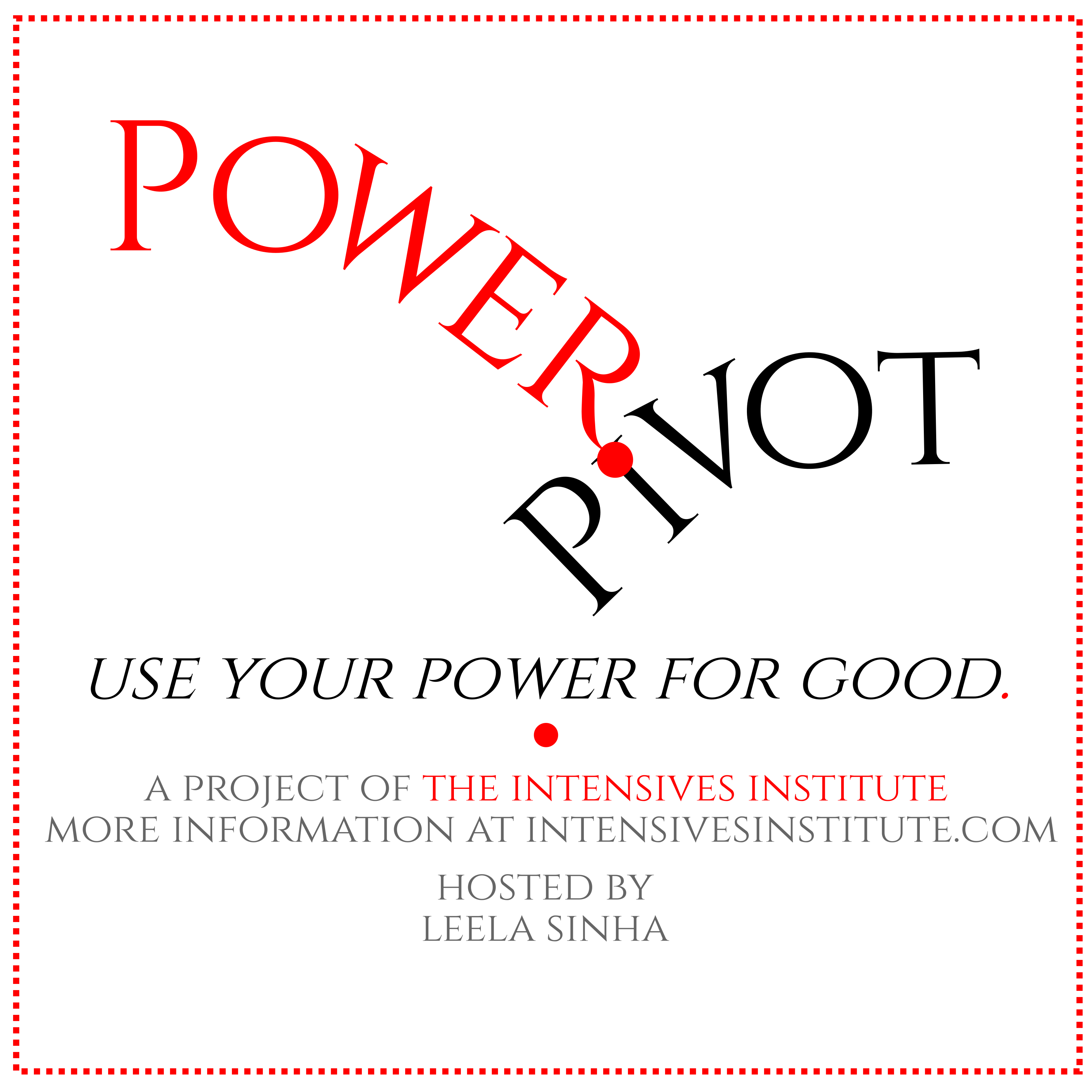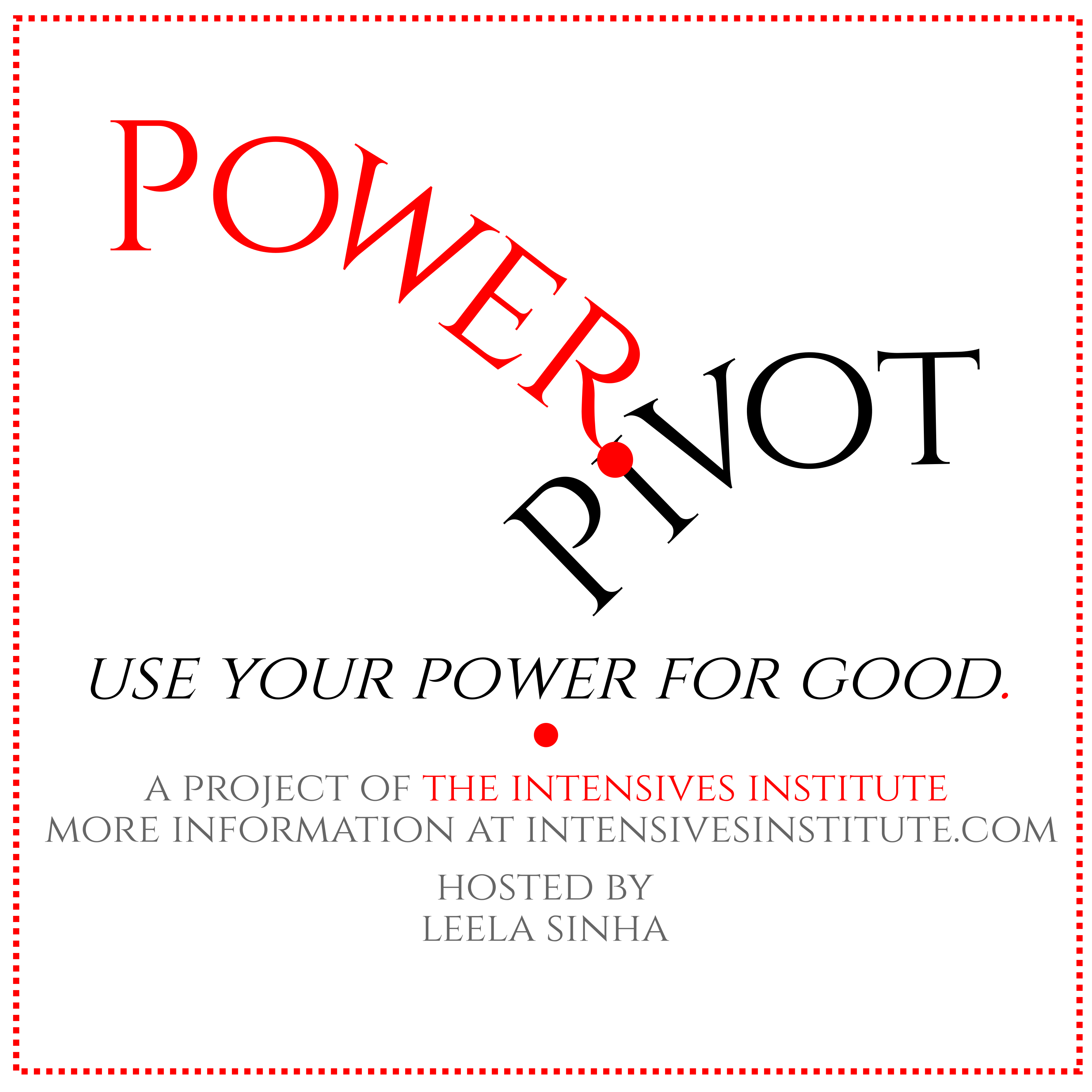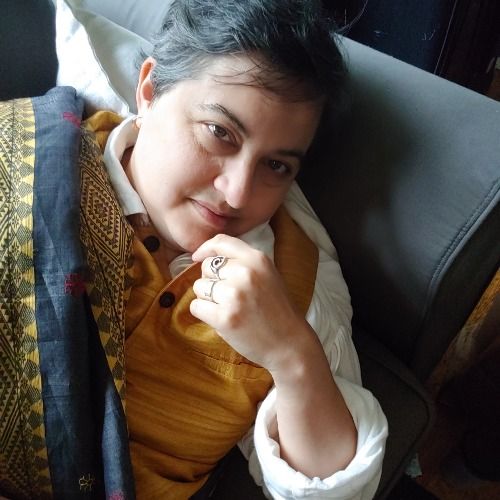Episode 7
belonging and the membership
"intensiveness is so invisible, that it was more like a goblin or a fairy seated at the table, but nobody could see it. And it was tired and lonely. "
Why we build spaces where we can belong, and be ourselves, and grow roots and wings, and have love... and snacks. Also, getting ready for the first Annual Intensives Institute Salon, on December 15th, 2022
For information about joining the Intensives Institute, visit:
https://dev.intensivesinstitute.com/membership/
Notes and transcript at:
https://powerpivot2.captivate.fm/episode/belonging-and-the-membership
Recorded 14 December 2022.
Transcript
So here's the thing, a community kind of has to have rules. There are rules that you know about and rules that you don't rules that are unspoken rules that are so obvious that you're supposed to know them without even thinking. And rules that have to be written down in triple space, in triplicate, in Times New Roman, on cold, white paper.
But communities have rules. That's how you know who's in and who's out who's participating and who's not. Is participation an expectation as a rule? Is presence participation? Or do you have to do something? Do you have to bring something? Do you have to give something other than your existence? And if you do, how much? How much counts? What counts? Who counts? Can anyone count? What are the things that we do to make sure that only the right people come through the doors? And make no mistake, there are always, always, always, right people.
The question is what binds you together? If you have a community, that's just a community, what is the thing you have in common? What are the things that you all promised to yourselves quiet, in the dark, or out loud in front of everybody? How do you know you belong? Or maybe you don't know you belong? Maybe it's the fear of not belonging, that keeps you on the straight and narrow. Maybe if you didn't have to stay on the straight, you wouldn't. Maybe you'd be queer, like the rest of us. But even queer spaces have their limits, have their boundaries.
We all want to belong somewhere, we all need to belong somewhere, that's a very human, very animal need: to be interlinked, to be co-supportive. To be interlocked, like blood platelets closing across a scab. We need each other. But we need to know that we can need each other that it's okay to need each other that we can rely on each other, in a pinch, in a hard time, in a confidence. In a moment where everyone else is voting against us, we need to know that we can go somewhere and be held.
And in a world that likes to beat people up for being needy, or in fact, needing anything; in a world that likes to exclude and ostracize and marginalize; in a world that is worried about abundance, and therefore has moved toward the conservative, non-abundant end of the scale, and is looking around for how we know who we should not give support to; we need to know how to draw the circle bigger, how to let people in how to welcome people in, how to call people back in when they have strayed away from the heart of the heart of what the community is, how to entreat people to be better than they have been, without accusing people of being deliberately terrible. Unless, of course, they are being deliberately terrible.
But in that case, you know, the worst thing-historically, the worst thing- is ostracism. The worst thing is being kicked out. The worst thing is not having anywhere to belong. And that's why we build communities. That's why we build spaces where we can go where we can be where we can have roots, and wings, and love and snacks.
My one partner has a bunny, a house rabbit. And when he arrived at her house, he was a rescue with a history of issues. He was bite-y, he was skittish. He didn't want to say hello. He didn't want to say goodbye. He mostly wanted to stay in the corner by himself. But this is not her first go round with rabbits and this is not her first rodeo with people who hide under the bed and so: she brought out the snacks. The good snacks.
And for weeks and months she fed him snacks. She fed him snacks from her hand. She fed him snacks from her lap. She put his dinner in a bowl but mostly she fed him snacks. She encouraged him to sit in her lap. Well, she fed him snacks but she didn't make him sit in her lap. She just kind of put the snacks in her lap and he decided that her lap couldn't be that bad if it had snacks. You know how it goes? One minute you're eating salad off a bowl on the floor and the next minute somehow you're up on the couch with your nose in someone's lap because they have cookies.
And then the question is, is that a lapse in judgment, right? Just because they have cookies, are they going to keep having cookies, or they're going to use this as a way to take control of you to do something you don't like, to hurt you? Or are they just going to keep having more cookies. Even better is when the next time you show up with cookies, and they eat your cookies, and you eat their cookies. And somehow there's some kind of weird bond because cookies. And then you do it again. And then you do it again. And then it becomes a habit, and then you become neighbors, and then you become friends.
And then you know that you've got each other even though each one of you thinks the other one is a little bit weird. But it doesn't matter. Because there are also lots of ways that you think that you're not weird that you're finally among friends. And finally, among friends is the place where you can relax, where your cortisol levels can drop, where you can have touch, and cookies, snacks, and love. Which I think is how so many of our cultures get to the point where snacks are love.
My Indian grandmother, and the Italian grandmother that used to live up the street from me, and the German and the Jewish families that I knew in the suburbs of New York City as a kid. We all shared this food-language-love. Snacks. If you eat together, it's better. If you share your food, it's better. If you invite someone to your table, it's better. And if all of you don't have a table, well, then you do what the Salvadoran family in my old neighborhood used to do. And you get out to sawhorses and a piece of plywood and a grill. And then you have a table and you have all the neighbors coming over and throwing two bucks in the bucket and eating your empanadas. It's a good tactic, it works pretty well.
I've spent so much time myself, not having a place at various tables or elbowing my way into the table. But like being perched at the corner where I'm straddling a table leg. And there's that pointy bit that points right into my chest whenever I try to lean into my plate that's about to fall off the table. But I am at the table, I did make it, sort of. And then I have to eat with like my fingers or plastic utensils because there weren't enough utensils. But I'm at the table. And that's what really counts. And it does count and it feels good. And it matters.
But I've spent so much time doing that in my life, that when I had the opportunity to finally create something that was different I did. I joined things that were different. And then I decided I could just make it from scratch, I could make something where I got to decide who belonged at the table. And what I decided on as I usually do is to put people at the table who don't usually have a table or who have some kinds of tables, but not this kind.
This piece of them is like a little piece of them that's been seated at that pointy corner on the low stool without the utensils. It's welcome, but only sort of. And only if it knows how to play the game and only if it can pretend that it's fine that it doesn't know how to eat soup without drinking from the bowl, which is rude, or being given a spoon, which they aren't. And so awkward moment after awkward moment, they make their way through the seven course meal that is a day, and then another day, and then another day, and then another day, and then eventually you get too tired and you just eat granola bars in your room.
So intensiveness is that part of me. For me that is the part that is most often seated at the corner of the table. Because the other groups are all things that I have known about myself, that I have learned about myself, that have words and meanings and definitions and organizations built around them somewhere. But intensiveness is so invisible, that it was more like a goblin or a fairy seated at the table, but nobody could see it. And it was tired and lonely. And the rest of me was tired and lonely. Because if you can't see that part of me, if you don't know that part of me, if you can't perceive, converse, talk about, connect with that part of me then, then do you really know me?
And so I brought that part of me out and I dusted that part of me off and I gave that part of me a whole table. And I knew there were others of us. And so now I'm inviting others of us to be at that table together. That's what the Institute is it's a table for us. It's a place where you can be intensive, and wild, and excited, and super, super interested in things. There's a lot of overlap with autism. There's a lot of overlap with ADHD, but intensiveness doesn't have to be those things either. If they are, they are. I'm autistic. But if they're not, they're not. That's okay too.
The thing is, if you're intensive, you're intensive, and that's its own thing. And you can come and be at the table. You can come and meet up with other people. You don't have to sit in your little Zoom Brady Bunch boxes. That's not how we're doing things. You also don't have to show up and show up and show up and show up in a forum where you have to come up with something to say, where things might get taken the wrong way. And you might not get a chance to explain. We're not doing that. We're all too busy and too tired. And the internet is complicated.
But we are doing salons. First salon is the 15th. That's tomorrow. If you haven't joined, and you want to join, go to dev.intensives.institute.com/membership.
Sign up, there's a $10 option and a $42 option a month. Depends on what you're looking for. But this first salon is open to everyone. This first salon is open to everyone. This is the annual salon, although I may change it to a different time of year at some point, but this is the annual one that everybody comes to that everybody can join in that everybody can celebrate together. Celebrate ourselves. Just be intensive together.
We may have three people, we may have thirty, I don't know. But I would be delighted if you were one of them because we all need a table where we feel welcome, especially in this season. We all need a table where no one's going to look at you for being weird for being yourself. Come on in and join us.
Thanks for listening.


